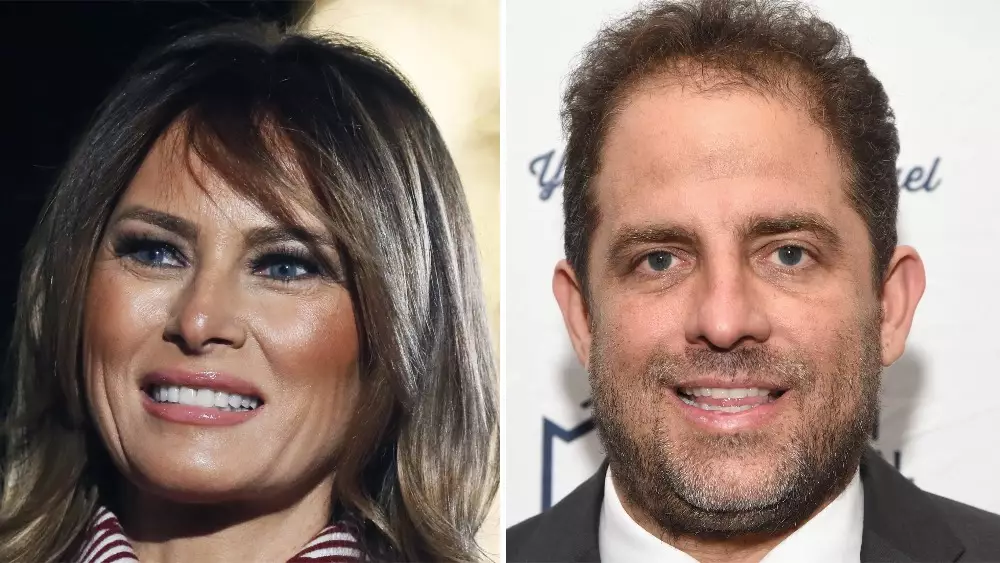The announcement of a documentary focusing on Melania Trump, directed by Brett Ratner, has stirred considerable public interest. Slated for release on Prime Video, this project promises to deliver an “unprecedented, behind-the-scenes look” at the life of the former First Lady. While many documentaries try to capture a subject’s essence, the expectations around this particular film are compounded by its timing and the controversial figures involved. This piece dives into the implications of this documentary, the context behind its production, and what it might mean for both Melania Trump and the broader political landscape.
This documentary arrives after a historic political backdrop; it was filmed following Donald Trump’s unexpected return to the presidency. With a production timeline initiated in December, shortly after his electoral victory, it brings into focus the relationship between Melania and Donald Trump, who have been subjects of both intrigue and scrutiny throughout their public lives. Melania, initially a distant figure during Trump’s political campaigns, eventually sought to carve her niche through initiatives like the “Be Best” campaign, aimed at children’s well-being and safety online.
However, the film pivots the narrative from a public persona to a more intimate portrayal. The availability of a platform as massive as Prime Video highlights the current media landscape’s adaptability toward controversial political figures, especially ones who have faced significant public discourse.
Brett Ratner’s involvement brings a complex dynamic to the project. Known for blockbuster films like the “Rush Hour” series, Ratner’s recent history in Hollywood has been tumultuous, marred by allegations of sexual misconduct that surfaced prominently during the Me Too movement. His departure from mainstream projects raises questions about the motivations behind his return to directing, especially with a high-profile subject like Melania Trump. Many may view this documentary as an opportunity for Ratner to revitalize his career, but it also casts shadows over the film’s reception given the controversies that haunt his narrative.
The choice of director also adds layers to the project’s anticipated critique and portrayal of Melania. Ratner’s eye for storytelling could result in a compelling narrative arc, but it also demands that viewers critically analyze the intent and angle that the director may inject into the film.
The partnership with Amazon is intriguing, hinting at a calculated move that blends media and politics. Jeff Bezos’s stated support for Donald Trump following his electoral victory makes Amazon’s exclusive licensing of the documentary seem less like an innocent venture and more like a political maneuver.
Additionally, Amazon’s prior financial contributions to Trump’s inauguration suggest a deeper relationship within the spheres of media influence and politics. This positioning raises ethical questions: Can a media giant maintain objectivity while being associated with politically active figures? The perceived bias, highlighted by the Washington Post’s editorial choices during the elections, illustrates the complications of maintaining journalistic integrity while navigating corporate interests.
As the documentary progresses through filming, public response will be a critical factor in its success or failure. Given Melania Trump’s polarizing public image, viewers are likely to approach the film with skepticism or curiosity, depending on their political leanings. The dichotomy between devoted supporters and passionate critics poses a challenge for the filmmakers; how to achieve a narrative that captures the complexities of a figure like Melania without alienating significant portions of the audience?
Moreover, the film’s potential to address broader cultural themes—such as the role of women in politics and the impact of celebrity on public perception—could enrich the viewing experience. As Melania represents a blend of traditional First Lady roles and modern celebrity culture, audiences will be keen to explore how these dynamics interweave within the American socio-political framework.
The impending release of the Melania Trump documentary on Prime Video represents more than just another biographical film; it encapsulates the intertwining of politics, media, and public perception in contemporary America. As the project unfolds, its success will depend on not only the storytelling craft of Brett Ratner but also the societal readiness to engage with the complex layers of Melania Trump’s life—both in the spotlight and beyond. The documentary’s anticipated release in the latter half of next year will undeniably be a focal point for discussions about the lingering impact of political celebrity, making it a noteworthy event in both media and political arenas.
